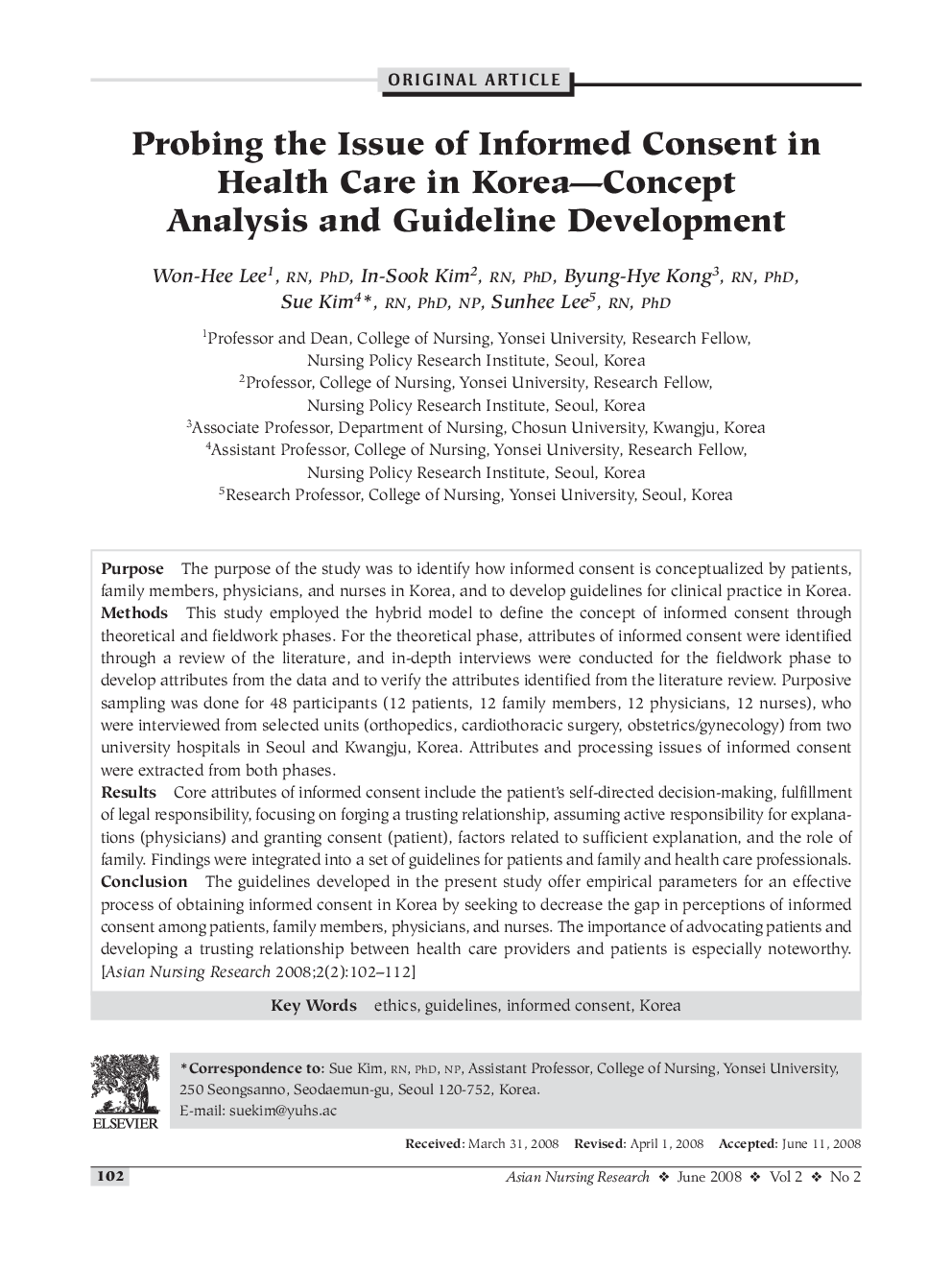| Article ID | Journal | Published Year | Pages | File Type |
|---|---|---|---|---|
| 2645329 | Asian Nursing Research | 2008 | 11 Pages |
PurposeThe purpose of the study was to identify how informed consent is conceptualized by patients, family members, physicians, and nurses in Korea, and to develop guidelines for clinical practice in Korea.MethodsThis study employed the hybrid model to define the concept of informed consent through theoretical and fieldwork phases. For the theoretical phase, attributes of informed consent were identified through a review of the literature, and in-depth interviews were conducted for the fieldwork phase to develop attributes from the data and to verify the attributes identified from the literature review. Purposive sampling was done for 48 participants (12 patients, 12 family members, 12 physicians, 12 nurses), who were interviewed from selected units (orthopedics, cardiothoracic surgery, obstetrics/gynecology) from two university hospitals in Seoul and Kwangju, Korea. Attributes and processing issues of informed consent were extracted from both phases.ResultsCore attributes of informed consent include the patient's self-directed decision-making, fulfillment of legal responsibility, focusing on forging a trusting relationship, assuming active responsibility for explanations (physicians) and granting consent (patient), factors related to sufficient explanation, and the role of family. Findings were integrated into a set of guidelines for patients and family and health care professionals.ConclusionThe guidelines developed in the present study offer empirical parameters for an effective process of obtaining informed consent in Korea by seeking to decrease the gap in perceptions of informed consent among patients, family members, physicians, and nurses. The importance of advocating patients and developing a trusting relationship between health care providers and patients is especially noteworthy.
